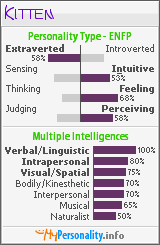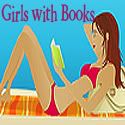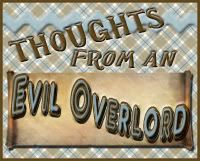 I brought this book with me on my cruise in February. I had been wanting to read David Foster Wallace's works for a very long time, and thought I'd start off small, before perusing his pièce de résistence, Infinite Jest (which tops off at over 900 pages).
I brought this book with me on my cruise in February. I had been wanting to read David Foster Wallace's works for a very long time, and thought I'd start off small, before perusing his pièce de résistence, Infinite Jest (which tops off at over 900 pages).I didn't realize until after I started reading the book how academic it is in nature. Wallace, after all, was a journalist who wrote for such diverse magazines as The New Yorker, Esquire, The Paris Review, Harper's, and Playboy. The book was composed of seven essays that were once published in magazines such as these. Some of the essays are very interesting. And some, if you don't have the background knowledge in order to appreciate what Wallace is writing about, can be difficult to read. I had to go back and re-read several paragraphs at a time in cases like these in order to fully absorb what I had read.
For example, the first essay, "Derivative Sport in Tornado Alley," was a memoir of Wallace's days as a competitive junior tennis player. Apparently he was once one of the best high school tennis players in Illinois. When he got to college, however, he realized that he could burn out very quickly, and gave up the sport. As a kid who was never an athlete, and never competed fiercely in any high school competition, I couldn't relate personally to some of his experiences. I liked the metacognition, or schema, that was needed in order to fully appreciate this essay. (My high school English teachers would be so proud of me for writing that last sentence!)
However, that first essay prepared me for the second to last tome of the book, an essay about a rising tennis star named Michael Joyce. At first I wondered who Michael Joyce was, since I had never heard of a tennis player with that name. And then I looked at the publication date of the essay: 1996. I decided to do a Google search to answer the "where are they now" question; however, I'll let you do a Google search, if you wish, once you finish reading this post. I don't want to include any spoilers.
The essays, while cerebral, are quite enjoyable, but not something you can read in one fell swoop. This is one of those works where you have to read a few paragraphs at a time, allow some time to absorb the information, and then continue. My friend Chantal, who went on vacation with me, would look over at me and pronounce that my book "wasn't beach-reading material." She is right; this is not something you can take with you to the beach on a lazy, hazy afternoon and breeze right through.
However, I read portions of the last essay to her, and she had to laugh at it as much as I did.
Why?
It was about the then-fledgling cruise industry.
That was a fitting conclusion to the book, given the environment. Next time I go on a cruise, though, I'm leaving the David Foster Wallace at home. This is good middle of the day reading, when your brain is functioning at its peak, but not just before bed reading when you're in the mood to relax. That having been said, I'm going to give him another chance; I just haven't decided which book it's going to be, yet.
I know it won't be Infinite Jest, though. Not yet.


































3 comments:
Interesting review. I don't know if it's my type of light summer reading either.
I came across this blog post and thought of you, of course. Check it out!
http://www.lettersofnote.com/2010/04/your-friend-conan.html
right on the money. I'm just finishing my first Wallace foray Consider The Lobster, again a collection of essays that are certainly not light and fluffy reading.
I'm reading a book of non-fiction essays right now and the only one I'm having trouble with is the one by Wallace!!! I'm going to try and give it another go though.
Post a Comment